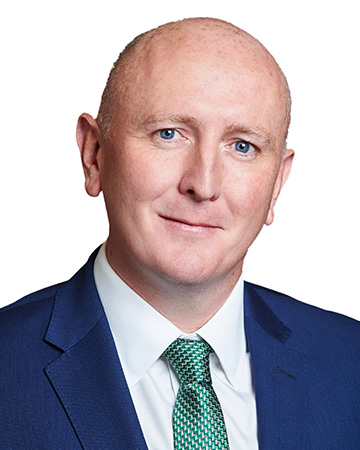
AI challenge to deliver better healthcare
- Government allocates almost $1 million for generative artificial intelligence innovation
- 19 successful applicants share in funding grants of up to $50,000
- Grants funded by the State's Future Health Research and Innovation Fund
The Cook Government's State's Future Health Research and Innovation (FHRI) Fund is challenging innovators to look at Generative artificial intelligence (AI) for ways to improve healthcare delivery in Western Australia.
Grants worth a total of $937,312 have been awarded to fund 19 projects exploring the opportunities and benefits of AI in healthcare – from reducing administrative burden to increasing the accuracy of diagnosis and treatment.
Foresight Medical's Professor Yogesan Kanagasingam is working on a non-invasive test for an early diagnosis of Alzheimer's disease. Currently, the disease is definitively diagnosed through brain imaging techniques that rely on significant visible brain changes to occur before they can be detected.
The new approach will use Generative AI tomeasure the constriction and dilation of the pupil in response to light flashes – a process which is altered in people with Alzheimer's due to the degeneration of cholinergic neurons.
This test can be carried out using a smart phone and has the potential to revolutionise early detection of Alzheimer's – enabling earlier interventions and potentially changing cognitive decline.
South Metropolitan Health Service's Dr Jafri Kuthubutheen is looking to use AI to improve access to ear health care in rural and remote WA.
This project involves developinga Generative AI model to identify ear conditions based on otoscopic images taken via a video otoscope – improving access to care for patients who need specialist ENT services in the Kimberley.
It's a potential game-changer for people living in the remote regions of the State where ear disease is disproportionately represented in Aboriginal and Torres Strait Islander populations and access to timely and accurate specialist care is limited.
In the first stage of the challenge, successful applicants will each receive up to $50,000 to do a feasibility study using Generative AI to address challenges across health and medical research, health and medical innovation, healthcare service delivery and health and medical education and training.
Stage 1 grant recipients can then apply for Stage 2 with four innovators awarded up to $500,000 to fully develop their Generative AI solution and implement it in WA.
The FHRI Fund is administered through the Department of Health's Office of Medical Research and Innovation with the full list of recipients available on the FHRI Fund website.
Comments attributed to Medical Research Minister Stephen Dawson:
"The Cook Government is committed to supporting and developing important health and medical innovation and I will be interested to see what opportunities Generative AI can bring to the sector.
"This technology involves uncertainties and risks, but also has the potential to dramatically increase efficiency, improve the quality of care, and create value for health care organisations.
"It is important to explore and assess whether this cutting-edge technology will help us to anticipate public health needs and interventions and improve the way we execute our healthcare programs here in WA."


